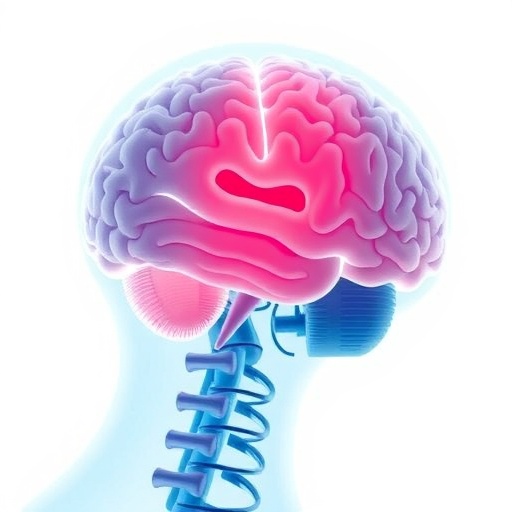
Recent studies in geriatric medicine have shed light on a pressing issue within the field of dementia research: motor manifestations in older adults diagnosed with Alzheimerâs disease. Alzheimerâs dementia not only affects cognitive abilities but also poses significant challenges related to motor skills and mobility, emphasizing the need for further investigation into the underlying factors that contribute to these manifestations. A recent study by Liampas et al. delves into this crucial aspect, presenting a cross-sectional analysis that reveals various associations impacting motor functions in this vulnerable population.
The study conducted a comprehensive examination of numerous individuals diagnosed with Alzheimerâs disease, focusing on their motor capabilities through structured assessments. It is widely recognized that the progression of Alzheimerâs disease is often accompanied by the deterioration of physical functions. The analysis in this research aims to identify specific characteristics and factors that could predict the decline in motor skills, which is essential for understanding patient needs and developing targeted interventions.
Understanding the multifaceted nature of Alzheimerâs disease is critical. The disorder primarily manifests through cognitive impairments, but as it advances, physical symptoms often emerge, including tremors, rigidity, balance problems, and difficulties in coordination. One of the core objectives of the study was to determine how cognitive decline correlates with the worsening of motor skills, thus providing deeper insights into the complexities of Alzheimerâs.
Liampas and colleagues utilized a cross-sectional design to capture a snapshot of the relationships between various socio-demographic factors and motor functions among older adults with Alzheimerâs. It is known that age, gender, and lifestyle can influence health outcomes, and this study highlights the importance of these variables in the context of dementia. For example, the findings suggest that older age may be associated with greater motor impairment, highlighting the compounded challenges faced by the elderly demographic.
Another focus of the research was to assess the impact of comorbid conditions on motor manifestations in Alzheimerâs patients. Patients are often burdened with multiple health issues that can exacerbate motor symptoms. Chronic diseases such as diabetes and cardiovascular conditions can affect overall physical health and consequently contribute to the decline of motor functions. The study emphasized that understanding these interrelationships is vital for creating comprehensive care plans for individuals suffering from Alzheimerâs.
Furthermore, the study meticulously documented the role of medication on motor abilities, as polypharmacy is common among older adults. The interaction between multiple medications can lead to side effects that may impair motor skills, making it essential to evaluate medication regimens regularly. This analysis opens up discussions around the need for careful management of prescriptions to safeguard motor functions in patients with Alzheimerâs dementia.
An intriguing aspect of the findings relates to the social determinants of health, which play a significant role in cognitive and motor functions. Social engagement and physical activity are known to contribute positively to the overall health of older adults. The research indicates that individuals living in socially active environments tend to maintain better motor functions compared to their counterparts in isolated settings. These insights advocate for the promotion of social interaction and engagement as strategies to sustain motor skills in Alzheimerâs patients.
Moreover, the psychological factors influencing motor performance cannot be overlooked. Depression and anxiety are prevalent among older adults with Alzheimerâs and can inadvertently lead to reduced participation in physical activity. The emotional landscape of a patient often dictates their physical engagement and consequently impacts their motor skill retention. This correlation points toward the necessity of integrating psychological support into the care protocols for Alzheimerâs patients.
The findings of this study not only contribute to the academic discourse surrounding Alzheimerâs disease but also hold practical implications for caregivers and healthcare providers. By understanding the factors that associate with motor manifestations, caregivers can better tailor their strategies to respond to the individual needs of patients. Early identification of potential motor difficulties can lead to timely interventions, ultimately improving the quality of life for those affected by dementia.
In addition, this research underscores the importance of interdisciplinary approaches in treating Alzheimerâs. Collaboration between neurologists, geriatricians, physiotherapists, and psychologists can create a holistic model of care that addresses both cognitive and motor aspects of the disease. Such teamwork can enhance outcomes and foster an environment of comprehensive support for patients and their families.
As the global population ages, the burden of Alzheimerâs disease continues to rise, necessitating urgent attention to associated disorders. Understanding the interplay between cognitive and motor functions in older adults will be paramount in crafting effective care strategies. The knowledge gained from studies like those conducted by Liampas et al. serves as a vital step towards addressing the complexities of Alzheimerâs disease, paving the way for improved patient outcomes through informed interventions.
In conclusion, as the prevalence of Alzheimerâs continues to escalate, the spotlight on its multifaceted impact on health must not dim. This study offers valuable insights into the factors associated with motor manifestations, reminding us that comprehensive patient care must encompass not just cognitive management but also the physical dimensions of this debilitating illness. Awareness and understanding are integral components in the effort to combat the challenges posed by Alzheimerâs disease.
The implications stemming from the research present an opportunity for further inquiry. Future studies could build on these findings, exploring longitudinal effects and potential interventions that may mitigate the decline of motor functions in Alzheimerâs patients. As research in this field advances, the potential for breakthroughs that enhance quality of life and promote independence for individuals with Alzheimerâs dementia becomes more tangible, reflecting hope and resilience in the face of a daunting diagnosis.
Subject of Research: Factors associated with motor manifestations in older adults with Alzheimerâs dementia.
Article Title: Factors associated with motor manifestations in older adults with Alzheimerâs dementia: a cross-sectional analysis.
Article References:
Liampas, I., Demiri, S., Stamati, P. et al. Factors associated with motor manifestations in older adults with Alzheimerâs dementia: a cross-sectional analysis. Eur Geriatr Med (2025). https://doi.org/10.1007/s41999-025-01259-z
Image Credits: AI Generated
DOI: 10.1007/s41999-025-01259-z
Keywords: Alzheimer’s dementia, motor manifestations, older adults, cognitive decline, social determinants of health.
Tags: Alzheimer’s disease research findingscognitive and motor function relationshipcomprehensive analysis of Alzheimer’s symptomscontributing factors to motor declinecoordination difficulties in Alzheimer’sgeriatric medicine and dementiainterventions for Alzheimer’s motor skillsmobility challenges in dementia patientsmotor symptoms in Alzheimer’s diseasephysical manifestations of Alzheimer’spredicting motor skill decline in Alzheimer’stremors and rigidity in dementia




